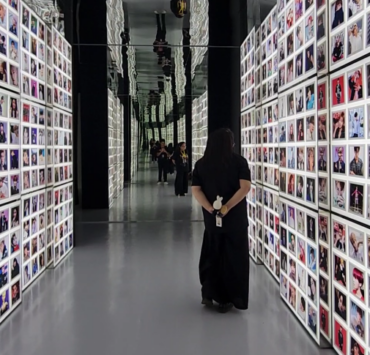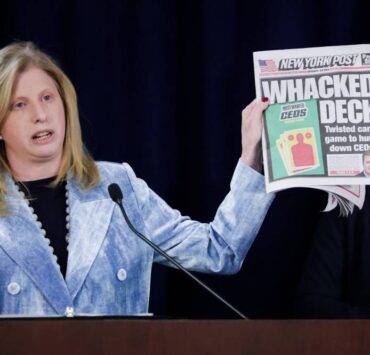‘Mufasa’ is Disney’s best movie of 2024
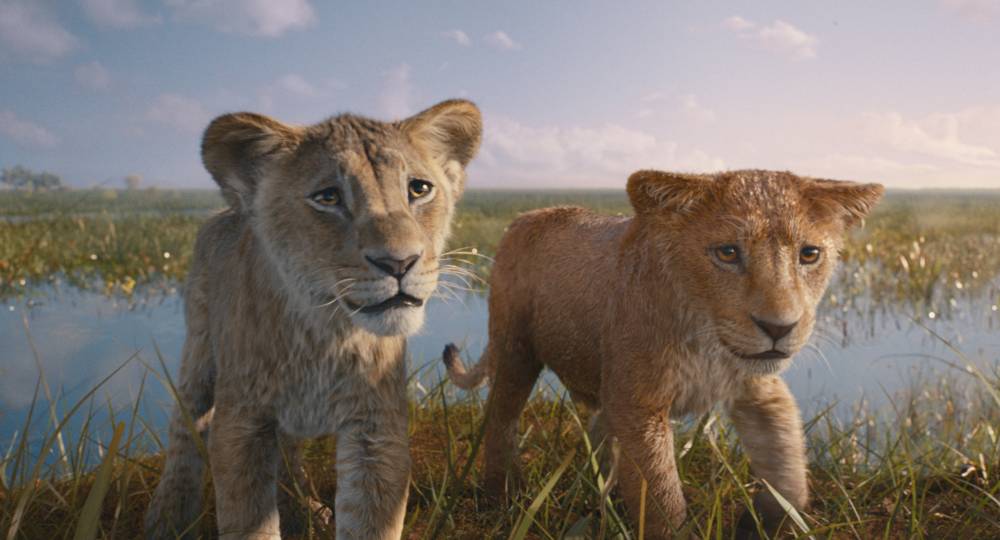
In the last couple of years, a noticeable portion of Walt Disney Studios’ movie slate has been live-action versions of landmark animated movies of yesteryear. Titans of their heyday like “The Little Mermaid,” “Beauty and the Beast,” and “Aladdin” have all gotten their turns at bat, with “Snow White,” “Moana,” and “Lilo & Stitch” on the way.
One of the most successful of these was “The Lion King,” and it was successful enough that it inspired the House of the Mouse to make this latest endeavor, “Mufasa: The Lion King,” a prequel.
Directed by Barry Jenkins (who wrote and directed the Best Picture-winning “Moonlight”) from a script by Jeff Nathanson, “Mufasa” obviously features Simba’s father, and his origin story, if you will. It answers questions we had back in the day: How did he become king? Was it passed down via the bloodline? How come only Scar has a British accent?
Mufasa (Aaron Pierre), turns out, does not come from royalty. He’s not even from the valley we know in “The Lion King.” He’s living a peaceful life as a cub with his parents when a weather event sets him adrift in a raging river, clinging to a branch for survival. He gets swept away to a different, faraway land, where he is rescued by Taka (Kelvin Harrison Jr.), prince of that land.
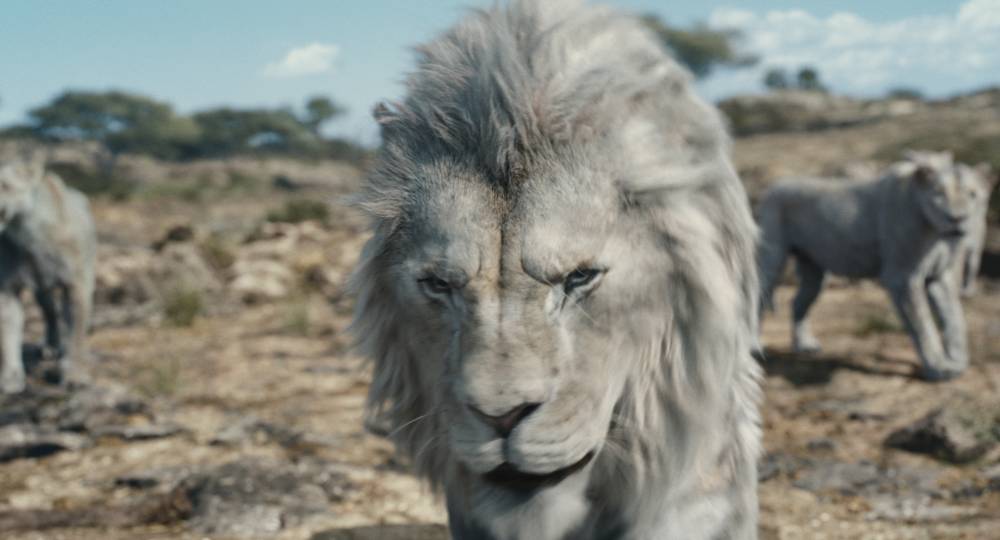
Both only children, a bond is forged as we learn they both have always wanted a brother (through song!). But when presented to Taka’s pride, Mufasa is met with suspicion and hostility. Told to stay with the females, Mufasa falls under the tutelage of Eshe (Thandie Newton), learning to hunt and track.
In their adulthood, a violent pride of white lions led by Kiros (Mads Mikkelsen) seeks to take over all the lands, and they have their sights set on Taka’s home. Outnumbered and outclassed, the two brothers are told to escape, with Mufasa tasked to protect his prince. So begins their journey to find a mythical valley where they will be safe.
Prequel
The trouble with most of the live-action remakes that Disney and other studios have been pumping out (there’s a forthcoming “How to Train Your Dragon” from Dreamworks) is that none of them have been able to truly justify their existence. They vary in quality from forgettable to alright, but none have felt necessary.
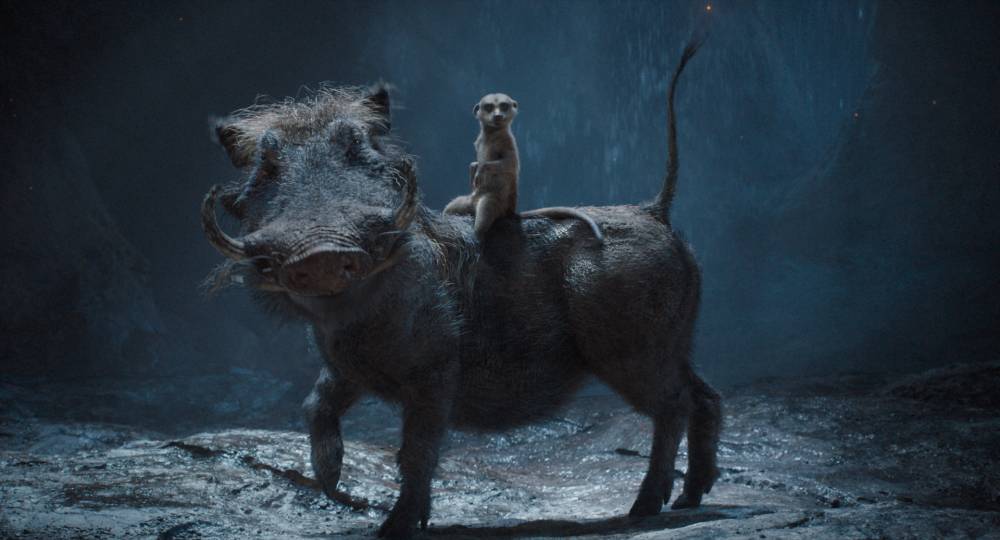
“Mufasa” is the first to achieve this, with a caveat. It’s not a live-action remake (as with “Lion King,” all these animals are computer-generated, thus still animation, even if they’re going for life-like realism); it’s not even a remake because it’s a prequel. Therefore, it has an advantage over the others: it is not retelling a story we already know and are familiar with, some of whose songs are etched in our memories. It gets to tell a new story (with new songs!).
Director Barry Jenkins is an excellent choice for this. A surprising one, what with his filmography of very grounded, down-to-earth, emotional tales of Black life in America (“Moonlight,” “If Beale Street Could Talk”). A CG animation epic didn’t seem in the cards.
Impressive sequences
But Jenkins’ storytelling instinct, his skill as a filmmaker, serves him well, delivering a stirring, emotional animal bildungsroman, filled with impressive sequences and deft touches. From a thrilling, thunderous elephant stampede that makes the audience near-claustrophobic by keeping the camera on the smaller creatures on the ground (and great sound design) to a sweet, stirring duet between Mufasa and his paramour Sarabi (Tiffany Boone) in the snow-capped mountains, sheets of ice distorting their perspectives of one another, it’s a joy seeing what Jenkins has done.
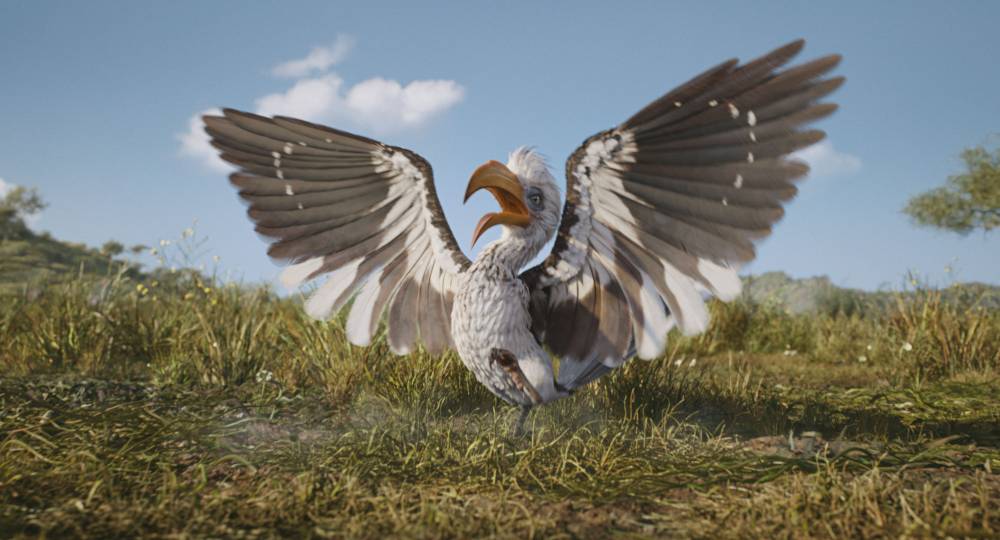
There’s a certain bravura aspect to his filmmaking here; this is the highest budget he’s ever had at his disposal, and he uses it by engineering some epic sequences and shots: gorgeous vistas and landscapes of brutal beauty, a final battle in a dark cave lit by patches of bright sunlight, making the lions look like warring statues carved from granite. There are also swooping bird’s-eye views over two groups of animals clashing.
Even if it’s all computer-generated, Jenkins employs in-camera tricks that lend the proceedings an added layer of realism, from different lenses to a SnorriCam rig that seems attached to Mufasa. It’s all very cinematic, even despite some touches like, at one point, a young Zazu (Preston Nyman) actually turning to the camera and addressing the audience.
Very funny
Complementing everything is the fact that it’s also very funny. The narrative structure is that the tale is being told by Rafiki (John Kani) to Kiara (Blue Ivy Carter), with Timon (Billy Eichner) and Pumbaa (Seth Rogen) also listening. The latter two provide much of the comic relief, as expected, but the jokes land.
The original songs by Lin-Manuel Miranda are some of his best work in a while, incorporating some well-known quotes to lend a classical air. In a musical like this, it does its main job well: allowing characters to express what they can’t say (even Kiros gets a number). There’s a moment when Taka starts singing that’s so well-timed you almost want to applaud preemptively.
The eventual turn that creates the rift between the brothers is handled well. Taka is a tragic figure, and the dissolution of their relationship is all the more bitter for how fondly they looked upon each other at the beginning.
All these elements make “Mufasa” a genuine surprise at the tail end of the year. In retrospect, with Jenkins involved, maybe audiences shouldn’t have worried.














